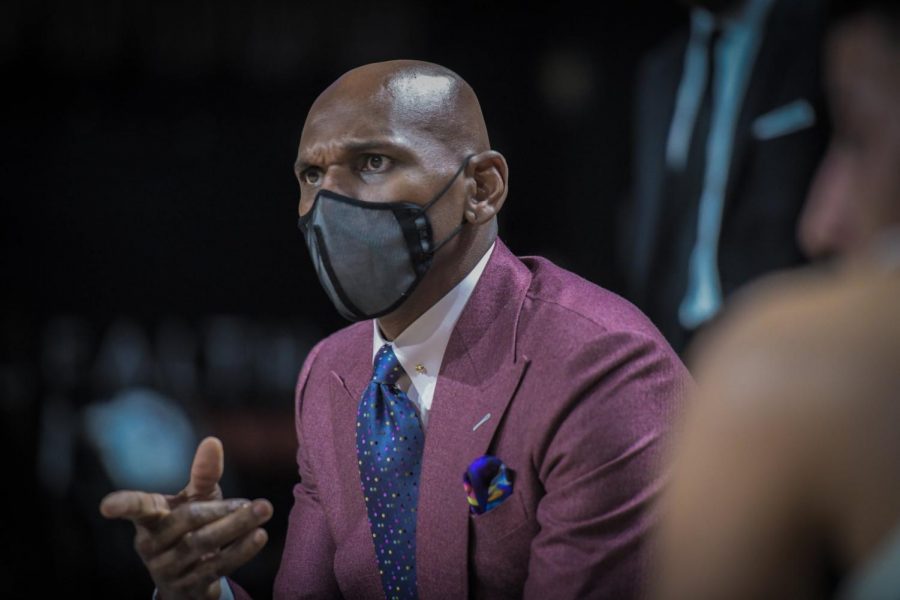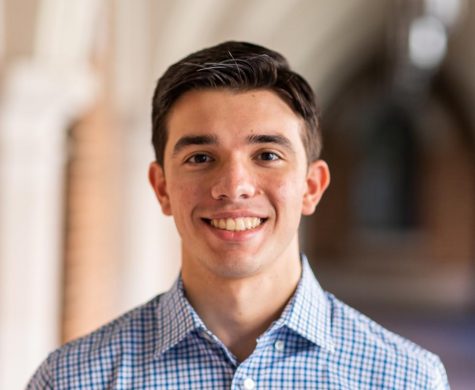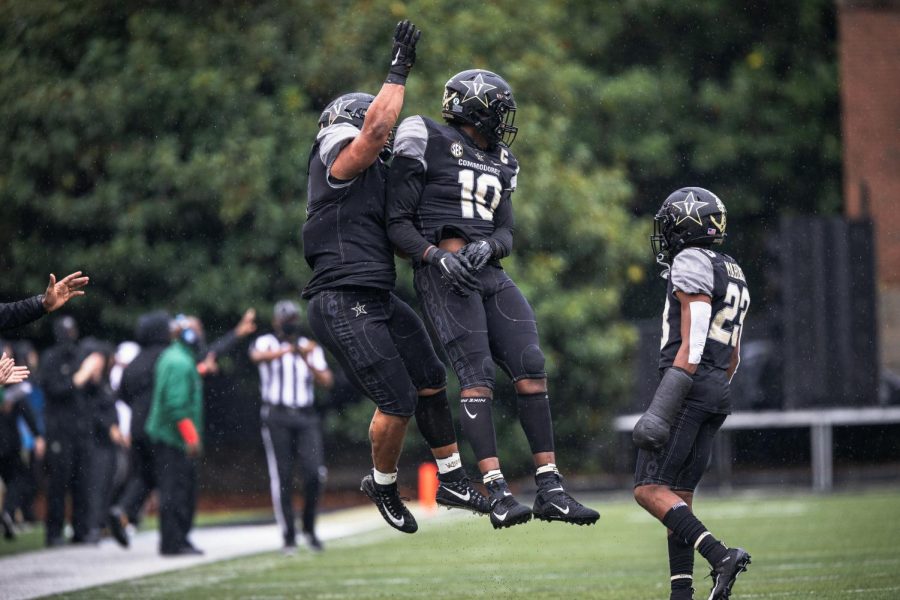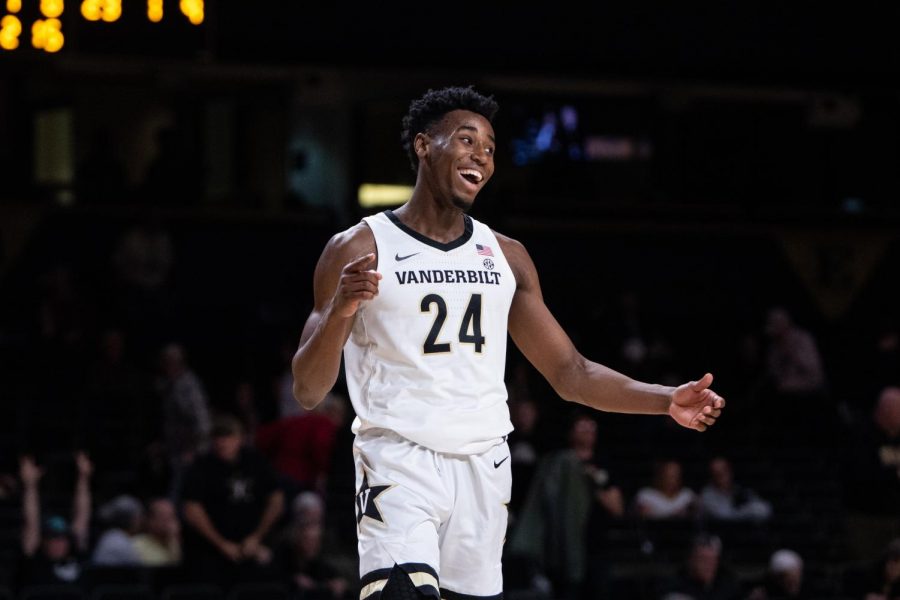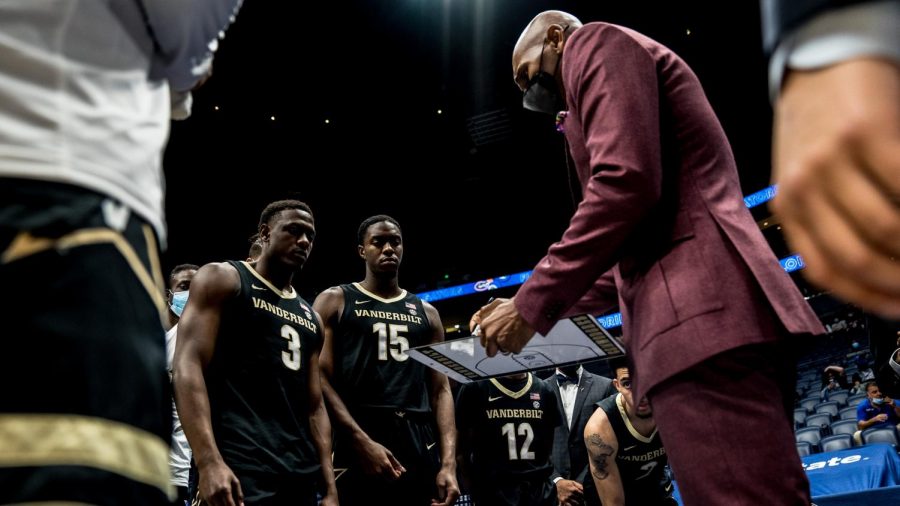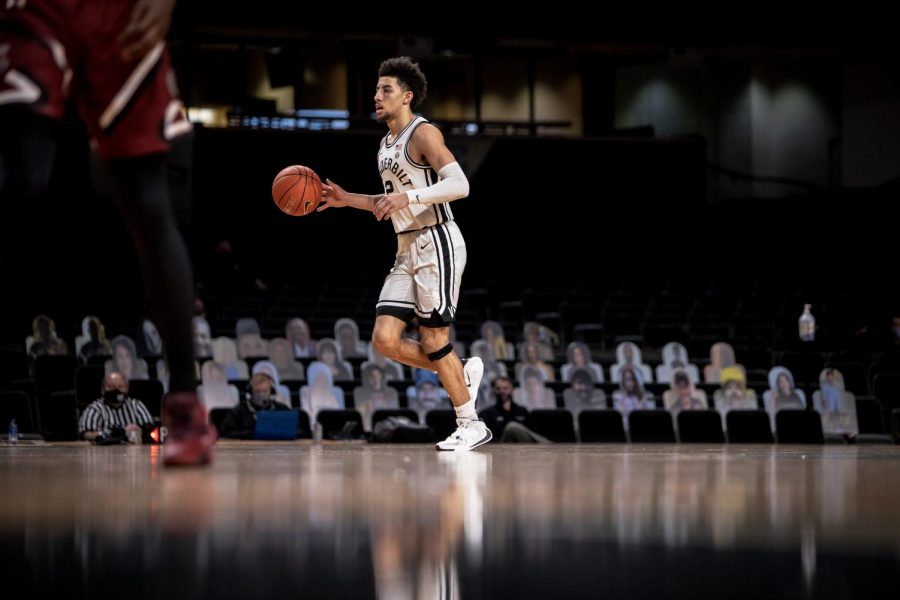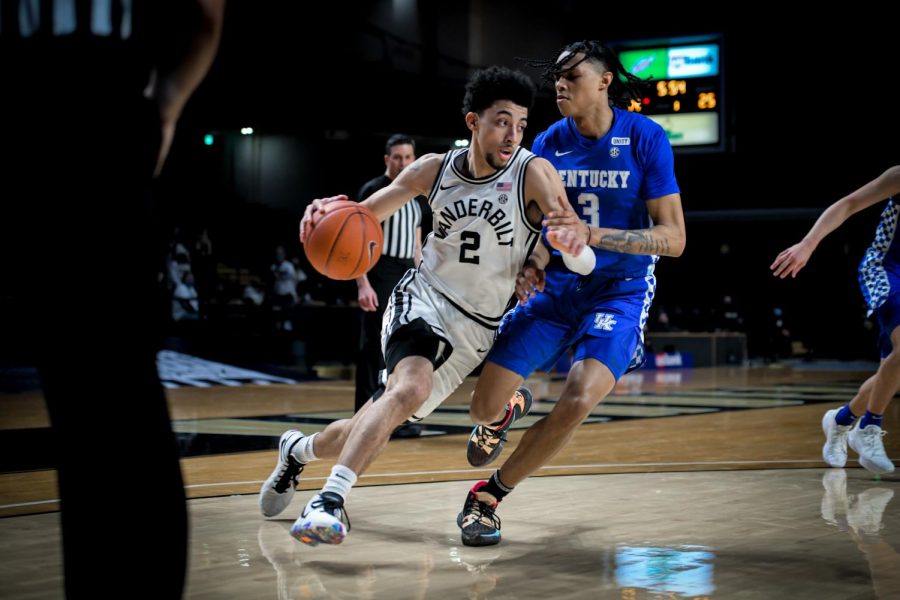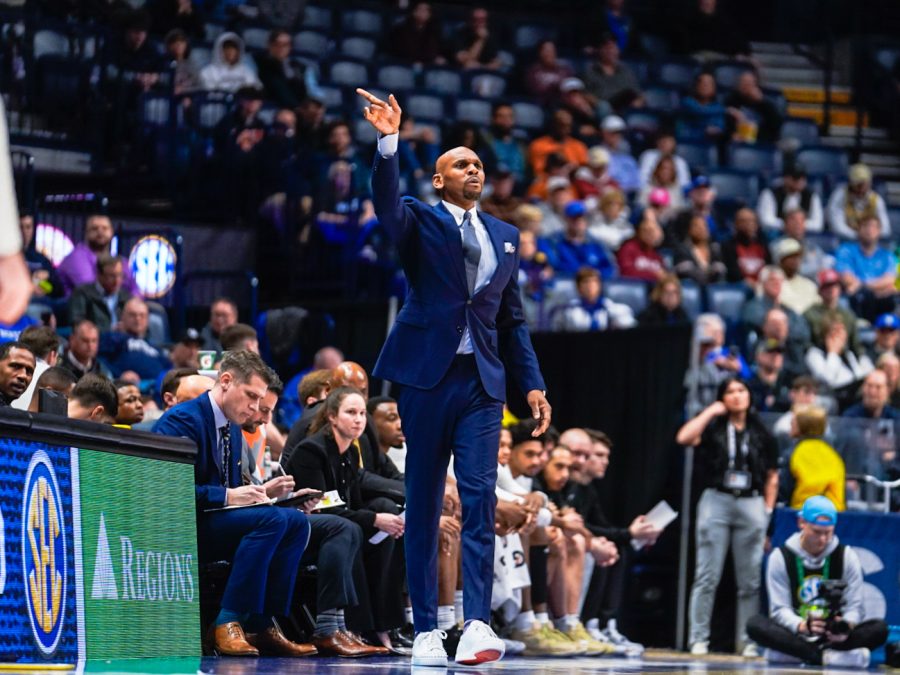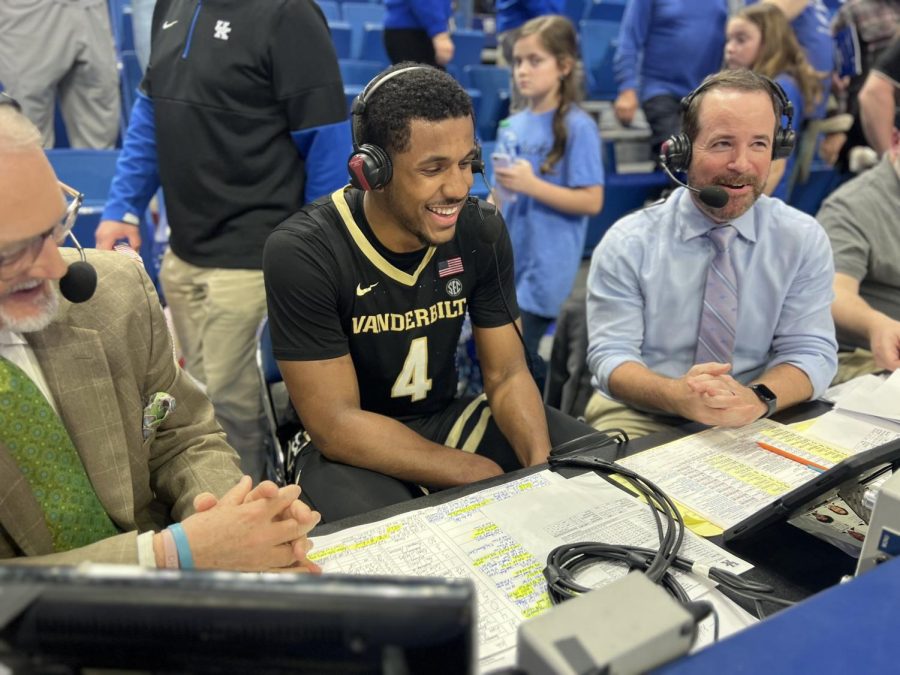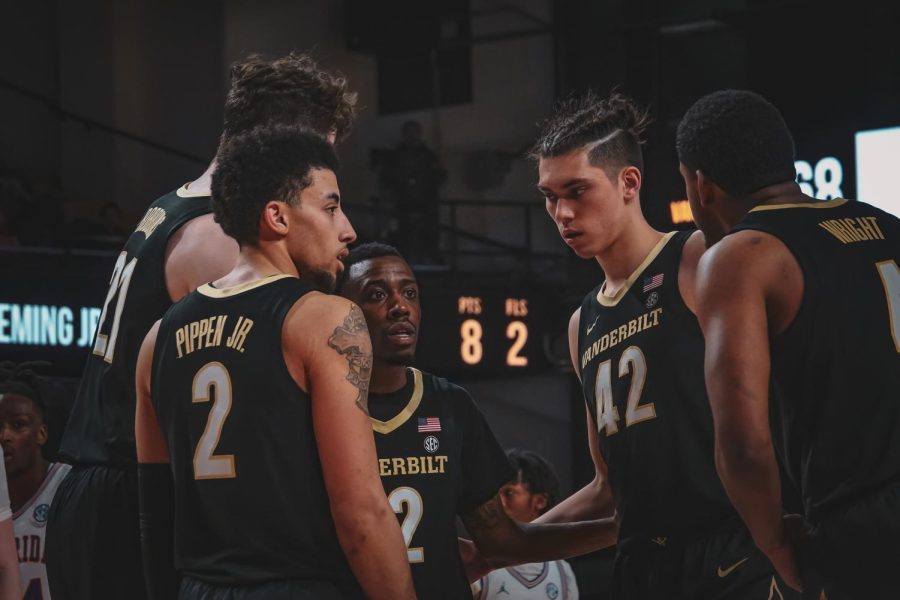Thursday’s 69-63 loss to the Florida Gators in the SEC Tournament concluded head coach Jerry Stackhouse’s second season at the helm of the Vanderbilt men’s basketball program. After finishing 9-16 overall and 3-13 in conference play with one SEC Tournament win, the team marked its fourth straight season winning less than 13 total games and third consecutive year with three or fewer regular season SEC wins.
To say Vanderbilt basketball has struggled mightily the past few years would be an understatement. This dreadful run has spanned two head coaches, three athletic directors and two university chancellors.
In Stackhouse’s two years, his record consists of exactly 20 wins and a .351 winning percentage. Based solely on the win-loss column, one could argue that his tenure has been a disappointment so far, but I think that is far from the truth.
Since having the program’s worst season two years ago under then-head coach Bryce Drew, Vanderbilt basketball has shown signs of life under Coach Stackhouse. I believe that he has the program headed in the right direction and that, given more time, he can lead Vanderbilt back to the NCAA Tournament.
It is important to understand that when he took over as head coach, Stackhouse inherited a roster that went 0-18 in SEC play and finished the season on a 20-game losing streak. Zero wins in 18 conference games (19, if you count the tournament)–something that had never been done before in the SEC–and 20-straight losses. Following the season, five of the team’s seven leading scorers did not return to the program.
At the same time, Stackhouse had only weeks to effectively recruit for the next season since he was hired in April, making his job even more difficult as most top prospects had already signed by then. Despite the circumstances, he was able to retain two Bryce Drew recruits in Scotty Pippen Jr. and Dylan Disu, and bring in three new signings (Jordan Wright, Oton Jankovic, and Braelee Albert), while also securing DJ Harvey and Quentin Millora-Brown as transfers from Notre Dame and Rice, respectively.
Despite all the obstacles he had to face in his first year, Coach Stackhouse helped guide Vanderbilt to both a better overall record and SEC record than in the previous season.
His record becomes even more impressive when one considers that the team suffered major midseason injuries. After just nine games, Stackhouse lost his best rim protector in Clevon Brown to a season-ending knee injury. That would usually be enough to derail any team’s season, but less than a month later, and not even halfway through the season, the Commodores also lost Aaron Nesmith—college basketball’s deadliest three-point shooter at the time (52.2% on 8.2 3PAs per game) and the team’s leading scorer—to a season-ending foot injury.
In his first year on the job, Coach Stackhouse saw the team he was rebuilding be decimated by injuries. After completing a difficult inaugural season, he would finally be able to have an entire offseason to recruit, prepare and develop his players.
That is what would have happened under normal circumstances, yet the COVID-19 pandemic upended the sports world.
Not only would Stackhouse have to do most of his job virtually because of the pandemic, he also had to deal with losing the roster’s two most impactful players—Nesmith and Saben Lee—to the NBA draft.
Like most programs this year, Vanderbilt’s season was severely impacted by COVID. The team had seven games canceled or postponed throughout the season and played several games with multiple players out due to COVID-related complications. At the same time, Stackhouse once again lost two players to season-ending injuries, as Tyrin Lawrence—the team’s top recruit—tore his ACL ligament and Disu, the SEC’s leading rebounder, needed surgery on his meniscus.
In spite of all the injuries and distractions, the Commodores concluded the season with their best winning percentage in three years.
Outside of the results, there are other facets where it is clear that Stackhouse has invigorated the program.
Between the injuries, the losses and myriad of distractions, it would be very easy for a group of players to give up, especially towards the end of the season when the last few games of a losing season can be considered meaningless. In Bryce Drew’s final season, the team’s performance seemed to progressively decline, as only two of their last eight games––all losses––were decided by less than 11 points. The season reached a new low when the Commodores lost 84-48 to Arkansas (a team that finished 9th in the SEC) on senior night in the final home game of the Drew era.
Under Coach Stackhouse, the opposite has occurred. In his first year, the team won three SEC games after the major injuries, including their last two conference games. This season, the Commodores won four of their last ten games, including three wins without Disu. Stackhouse has gotten his team to compete when it would be so easy for them to make excuses and stop caring about playing.
No one, especially Coach Stackhouse, wants to talk about “good losses,” but it is a positive sign for the program that the Commodores have been competitive and kept games close rather than getting blown out. Eight of this year’s 13 losses in SEC play were by seven points or less. Two seasons ago, Vanderbilt only had five such losses, and zero wins to add on.
This difference is noticeable in games against ranked opponents as well. In then-coach Drew’s final year, the team produced one win and had an average margin of defeat that was just over 16 points per game versus ranked opponents.
In the two years since, Stackhouse’s team’s have consistently played harder and kept the score closer in these types of contests. This noticeable shift in attitude and mentality reflects leadership and competitiveness on Stackhouse’s part and on the players he is recruiting.
Coach Stackhouse was also able to secure the program’s first tournament win since 2017 on Wednesday night, when the Commodores defeated Texas A&M 79-68.
Along with Coach Stackhouse’s arrival came a more efficient and structured style of basketball. The team’s sets have been modernized, often resembling that of NBA offenses and SEC coaches know it.
“I think coach Stackhouse has done a phenomenal job with them,” LSU head coach Will Wade said. “They’ve been really close in a lot of games, they run terrific offensive stuff. They have as good a weakside movements and screening and cutting and in-screens as any team in our league.”
Stackhouse has also overhauled the team’s defense, bringing in a more hard-nosed and aggressive style that is able to produce more opponent turnovers than in previous years, as Drew’s final team caused 11.3 opponent turnovers per game, while Stackhouse’s squads have forced just under 14 per game.
“I think that’s a sign of terrific coaching,” University of Tennessee’s head coach, Rick Barnes said. “Players that want to be coached. They made it hard on everybody they played.”
The reality is that Coach Stackhouse inherited a Vanderbilt program that was trending downward and has repeatedly suffered major, untimely injuries, yet he is proud to coach this team and he prepares his players to compete every game.
“It’s going to take some time,” Stackhouse acknowledged after their most recent victory over Texas A&M, but it certainly feels like the program is close to a breakthrough to being competitive again.
This is why I argue that Stackhouse should be given time to achieve his goals. It took Kevin Stallings five years to reach the NCAA Tournament with this program, and he then produced one of Vanderbilt basketball’s most successful eras.
Stackhouse has consistently said that he wants to help rebuild Vanderbilt basketball, and he plans on being in Nashville for a long time.
“I signed up for six years. And if you know Minnie and George Stackhouse and how they raised me, we ain’t giving no money back,” Stackhouse told the Athletic’s Joe Rexrode in February.
If Pippen Jr. and Disu return for next season, the team should take a step forward. Coach Stackhouse is well aware of how difficult that situation he came into is, but he has no plans on backing down.
“I love the challenge, I love being here, and I love Nashville,” he said after the team’s most recent win.
I believe he has earned the right to fulfill his contract as Vanderbilt’s head coach.


